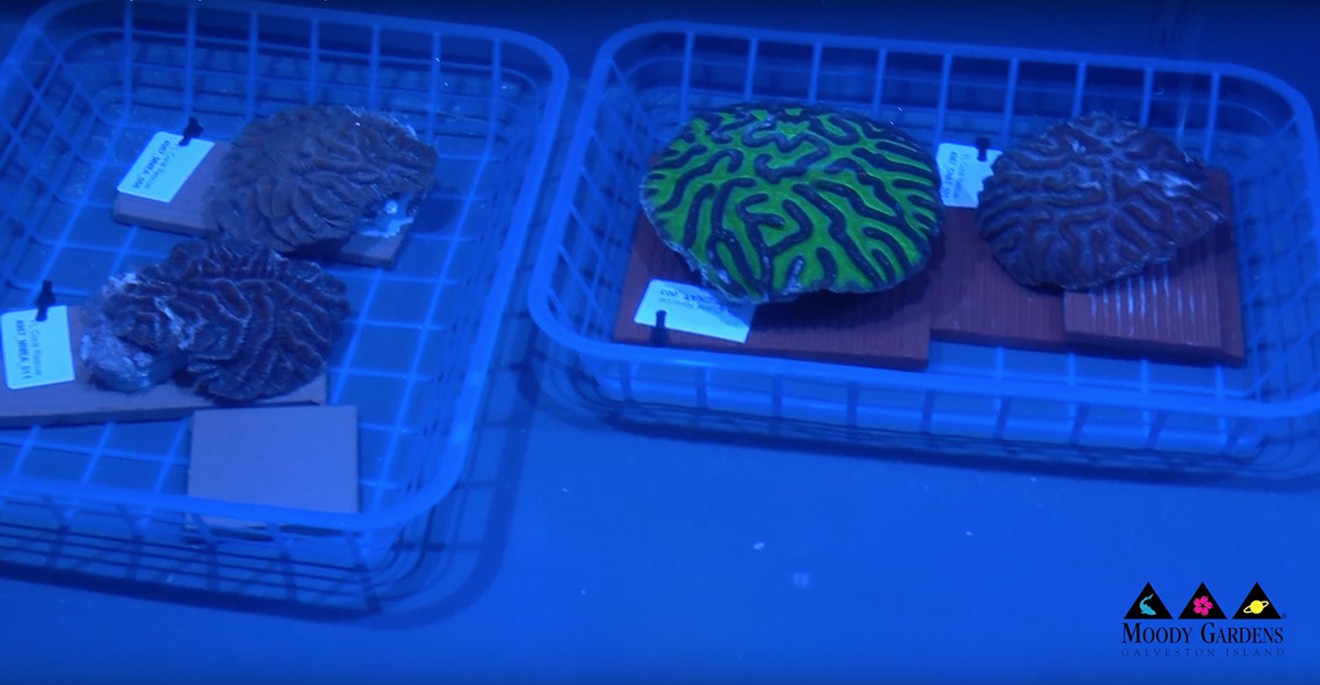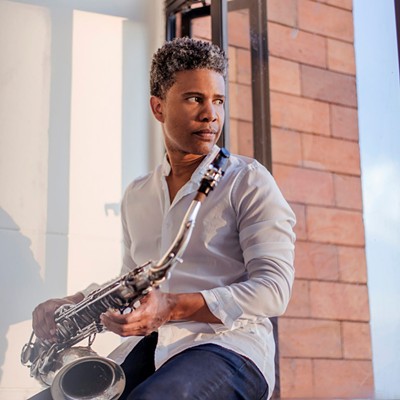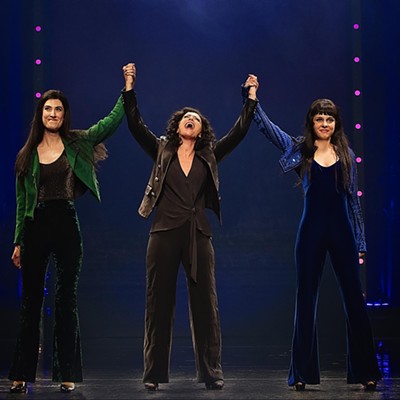Support Us
Houston's independent source of
local news and culture
account
- Welcome,
Insider - Login
- My Account
- My Newsletters
- Contribute
- Contact Us
- Sign out

Moody Gardens Aquarium Pyramid wants you to be a reefer to help save coral reefs.
Screenshot from Fintastic Friday: Moody Gardens to Open Reefer Lab on 4.20/Youtube.com
[
{
"name": "Related Stories / Support Us Combo",
"component": "11591218",
"insertPoint": "4",
"requiredCountToDisplay": "4"
},{
"name": "Air - Billboard - Inline Content",
"component": "11591214",
"insertPoint": "2/3",
"requiredCountToDisplay": "7"
},{
"name": "R1 - Beta - Mobile Only",
"component": "12287027",
"insertPoint": "8",
"requiredCountToDisplay": "8"
},{
"name": "Air - MediumRectangle - Inline Content - Mobile Display Size 2",
"component": "11591215",
"insertPoint": "12",
"requiredCountToDisplay": "12"
},{
"name": "Air - MediumRectangle - Inline Content - Mobile Display Size 2",
"component": "11591215",
"insertPoint": "4th",
"startingPoint": "16",
"requiredCountToDisplay": "12"
}
,{
"name": "RevContent - In Article",
"component": "12527128",
"insertPoint": "3/5",
"requiredCountToDisplay": "5"
}
]
With proof that biologists and animal husbandry managers do have a sense of humor, Moody Gardens launched its "Be a Reefer" initiative on 4/20 day, though they swear it was really timed to coincide with Earth Day.
All giggles aside, what's with all this reefer talk? It turns out there's a mysterious, deadly bacteria known as stony coral tissue loss disease that's a killer when it comes to coral reefs. The fast-moving disease turns coral white and leaves nothing but a skeleton — far more serious than the coral bleaching we've been hearing about, where coral is weakened by rising water temperatures and ocean acidification.
The plague really sucks for aquatic invertebrates like jellyfish, lobsters and crabs, as well as for fish and sea turtles (coral provides food, shelter or both); it also is weakening Florida's defense system.
"So a lot of people don’t realize it. Coral reefs are a natural barrier for the land, [diffusing energy] from hurricanes and storms — especially for Florida with such a lower elevation," says Moody Gardens biologist Ryan Hannum. "But then also reefs are big hubs for the tourist industry. It drives the economy for coastal places; fisheries as well."
The Florida Reef Tract is the third largest coral reef system in the world — right behind the Great Barrier Reef in Australia and the Belize Barrier Reef — and a big problem calls for an even bigger solution.
The Association of Zoos and Aquariums is calling on dozens of facilities in North America to chip in to help save what's left; the plan includes housing and maintaining corals for gene banking and propagation, with the goal of future restoration.
Hannum says the level of support varies from facility to facility, but that the Aquarium Pyramid has hands-on capabilities and was one of the first to receive some of the Florida coral on April 17. "Our goal is to raise them in our facility so that there is a physical barrier between them and the disease, hold on to them for three years — which is the expected time span for the disease to leave the region — and once it disappears we plan to return them," says Hannum, adding that other facilities will be breeding corals to have selective traits, such as being resistant to heat or acid.
Visitors to Moody Gardens can view the Florida corals in the newly created Coral Rescue Lab, though they are isolated from other species at the Aquarium Pyramid. "Because these coral are going back in the wild you don’t want to introduce aquarium-based bacteria and then transfer that back in the wild; it could be invasive."
Hannum says harmful bacteria is present everywhere; it's just most prominent in the Florida Reef Tract, so he'll be monitoring the corals over the next three years to see if they develop the disease. "We want to remind people that this is a bad outbreak, the equivalent of the plague. Sometimes a disease outbreak occurs that no one realizes; a lot of it is being triggered by ocean warming or the ocean becoming more acidic. It causes them to be more vulnerable, a secondary level of disease.
"We need to get the awareness out there that [human behavior] is impacting corals. As oceans get more affected by climate change we'll see more of this," says Hannum. "We’re one of six facilities to currently have coral but the list is growing; last I heard there were 60 facilities intending to partner — other aquariums and zoos — and that number is rising. Everybody’s trying to get behind it; everyone’s trying to help."
While visiting Moody Gardens, be sure to stop by and try your hand at the virtual reality experience, Reef Rescue VR. Not only is it a fun experience, trying to navigate a submarine while dodging sharks, you'll walk away with newfound knowledge about ways to help preserve the health of our oceans.
Aquarium Pyramid is open 10 a.m. to 6 p.m. daily at Moody Gardens, One Hope Boulevard, Galveston. For information, call 409-744-4673 or visit moodygardens.com/attractions/aquarium_pyramid. $26.95 to $32.95 (free for children three and under).
KEEP THE HOUSTON PRESS FREE...
Since we started the Houston Press, it has been defined as the free, independent voice of Houston, and we'd like to keep it that way. With local media under siege, it's more important than ever for us to rally support behind funding our local journalism. You can help by participating in our "I Support" program, allowing us to keep offering readers access to our incisive coverage of local news, food and culture with no paywalls.
Susie Tommaney is a contributing writer who enjoys covering the lively arts and culture scene in Houston and surrounding areas, connecting creative makers with the Houston Press readers to make every week a great one.
Contact:
Susie Tommaney
Trending Arts & Culture
- Best Bets: Earth Day, Noche Caliente and a Spring Festival
- The Story Stalls But The Beat Goes On in The Cher Show at TUTS
- Using Flashbacks and Direct Quotes From the Classic Book, Alley Theatre Presents Jane Eyre
-
Sponsored Content From: [%sponsoredBy%]
[%title%]

Don't Miss Out
SIGN UP for the latest
arts & culture
news, free stuff and more!
Become a member to support the independent voice of Houston
and help keep the future of the Houston Press FREE
Use of this website constitutes acceptance of our
terms of use,
our cookies policy, and our
privacy policy
The Houston Press may earn a portion of sales from products & services purchased through links on our site from our
affiliate partners.
©2024
Houston Press, LP. All rights reserved.





